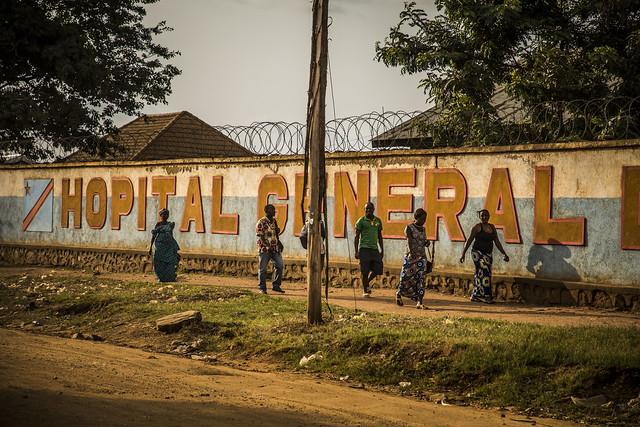Today The Lancet Infectious Diseases published two new studies that show how the response to the current Ebola outbreak in the Democratic Republic of the Congo (DRC) has been shaped by the lessons gleaned from the West African outbreak of the viral disease from 2013 to 2015.
In a separate development, the DRC's health ministry reported nine new infections today, part of an ongoing surge of cases.
Novel strain triggered earlier outbreak
Most notably, the DRC has used in-country genomics to provide real-time analysis of the virus. In 2018, the DRC played host to its 9th and 10th Ebola outbreaks, drastically different in size and scope.
The newly published studies prove the virus strain responsible for the current outbreak, the world's second largest, is genetically different from a smaller outbreak in the western reaches of the DRC that ended in July of 2018.
From the earlier outbreak, which involved 54 cases, Placide Mbala-Kingebeni, MD, and colleagues sequenced 16 Ebola virus (EBOV) genomes to identify the novel strain, named "Tumba." That outbreak had a case-fatality rate of 60%, similar to the West African outbreak. The Tumba strain of the virus, however, was not as susceptible to current Ebola treatments.
"We show the feasibility of using genomics to rapidly characterise a new Ebola virus variant within the timeframe of an outbreak," concludes the authors of the study.
A second study, also authored by Mbala-Kingebeni and colleagues, focused on the coding of two Ebola virus genomes collected 5 days after the current outbreak, in the DRC's North Kivu and Ituri provinces, broke out. The current outbreak has a case-fatality rate of 62%, the highest of any documented Ebola outbreak.
The authors determined that this outbreak was not caused by the Tumba strain of Ebola virus, and was more susceptible to monoclonal antibody therapeutics (mAb114 and ZMapp), which are currently being used as treatment options.
Writing in a commentary on that study, a group led by Anise Happi, PhD, of the University of Ibadan in Nigeria, said the work supports the establishments of national and regional hubs of infectious diseases genomics in regions with a high risk of outbreaks "where untargeted metagenomic sequencing analysis would be done. Thus, providing a potential one-step solution for outbreak pathogen detection of both known and novel pathogens would replace the need for multiple individual pathogen assays."
Outbreak grows to 1,273 cases
According to the ministry of health's daily update, the DRC today confirmed 9 new cases, including 3 each in hotspots Katwa and Butembo, and one each in Masereka, Mandima, and Kyondo, raising the cumulative outbreak total to 1,273 cases, including 821 deaths. Seven deaths of confirmed cases were noted today, including four community deaths.
The DRC also updated its epidemiologic assessment of the outbreak, focusing on the week that began on Apr 8. Since then, 54.5% of all newly confirmed 110 cases came from Katwa.
"The number of new confirmed cases notified weekly has increased significantly in the last 5 weeks following targeted attacks against the Katwa and Butembo CTEs" the ministry of health said.
Of the 83 deaths recorded last week, 49 were community deaths, or 59%, and 34 occurred in a treatment facility.
Vaccination efforts continue, with 101,249 people vaccinated with rVSV-ZEBOV, including 26,316 in Katwa, 22,059 in Beni, 12,447 in Butembo, and 6,556 in Mabalako.
Today Felix Tshisekedi, the president of the DRC, visited an Ebola treatment center in Beni, and made a speech calling on the local community to work with outbreak response workers.
See also:
Apr 16 Lancet Infect Dis study
Apr 16 Lancet Infect Dis North Kivu study
Apr 16 Lancet Infect Dis commentary
Apr 16 DRC update

















